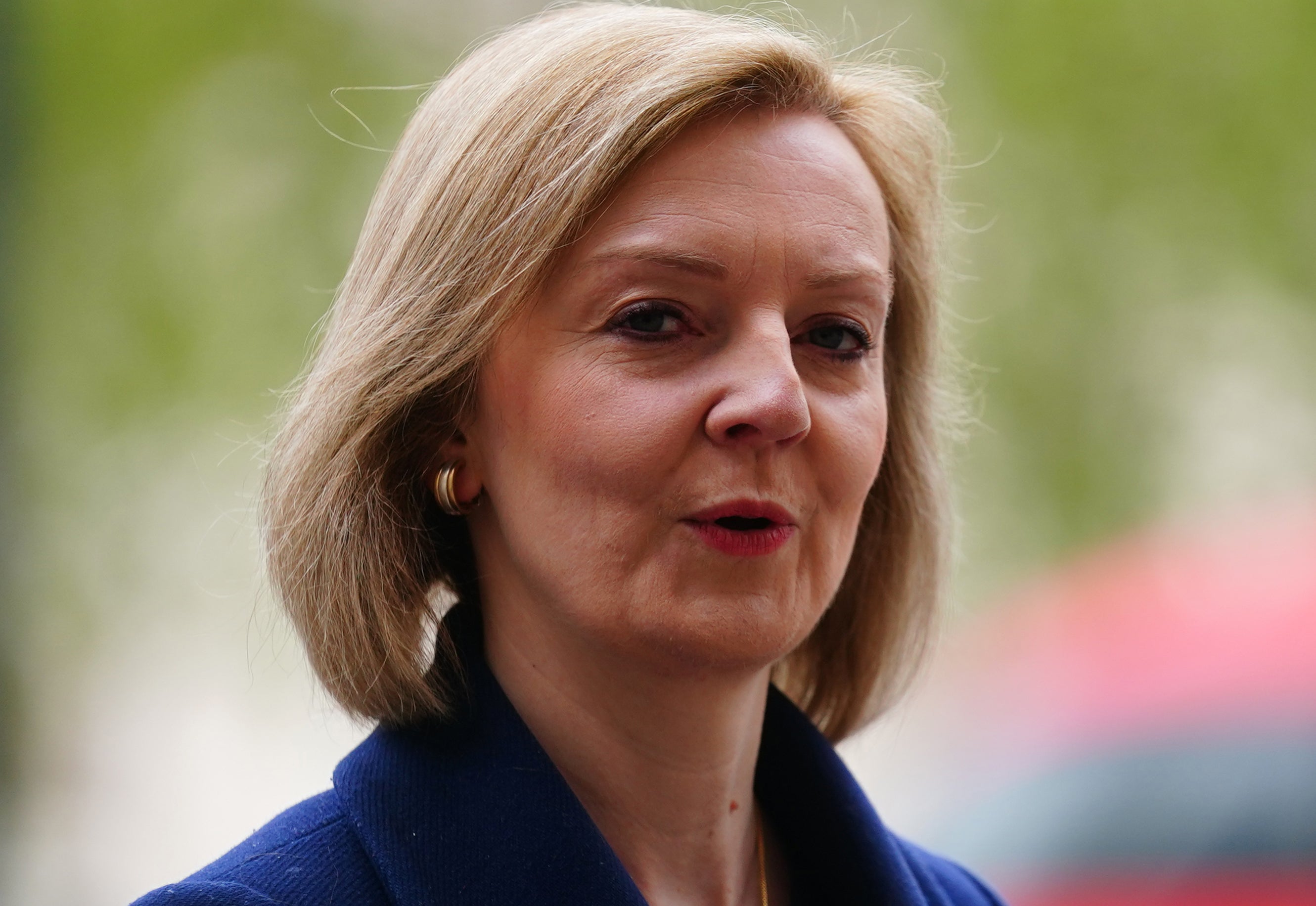Truss condemns ‘war crime’ after Russian bomb hits Ukrainian school
The Foreign Secretary said she was ‘horrified’ by the incident which is feared to have left dozens dead.

Your support helps us to tell the story
From reproductive rights to climate change to Big Tech, The Independent is on the ground when the story is developing. Whether it's investigating the financials of Elon Musk's pro-Trump PAC or producing our latest documentary, 'The A Word', which shines a light on the American women fighting for reproductive rights, we know how important it is to parse out the facts from the messaging.
At such a critical moment in US history, we need reporters on the ground. Your donation allows us to keep sending journalists to speak to both sides of the story.
The Independent is trusted by Americans across the entire political spectrum. And unlike many other quality news outlets, we choose not to lock Americans out of our reporting and analysis with paywalls. We believe quality journalism should be available to everyone, paid for by those who can afford it.
Your support makes all the difference.A bombing raid on a Ukrainian school where people were sheltering is a possible war crime, Foreign Secretary Liz Truss has said.
Dozens are feared dead after the school in Bilohorivka in the Luhansk region of eastern Ukraine was bombed and caught fire on Saturday.
The Foreign Secretary said she was “horrified” and added that Vladimir Putin’s regime in Moscow would be held to account.
Around 90 people were thought to have been sheltering at the school but just 30 have been rescued.
Ms Truss tweeted: “Horrified by Russia’s latest attack on a school in Luhansk, resulting in the deaths of innocent people sheltering from Russian bombardment.”
She said the deliberate targeting of civilians and infrastructure “amounts to war crimes” and “we will ensure Putin’s regime is held accountable”.
Her comments came as G7 leaders including Boris Johnson and Joe Biden held talks with Ukraine’s president Volodymyr Zelensky.
Mr Johnson told his counterparts “the world must go further and faster to support Ukraine” against the Kremlin’s invading forces.
A Downing Street spokeswoman said: “The Prime Minister said there was a savage irony that the leaders had gathered to discuss Putin’s barbaric invasion on a day when they should be remembering the sacrifice of Russian soldiers defeating fascism in the Second World War.
“He agreed with G7 leaders that the world must intensify economic pressure on Putin in any way possible, and said the West must not allow the war to turn into a stalemate that only magnified suffering.
“Ukraine needed to receive military equipment that allowed them to not just hold ground in Ukraine, but recapture it, the Prime Minister told the leaders.”
The G7 agreed more needed to be done to support Ukraine’s agricultural exports, with the war impacting food supplies around the world.
Mr Johnson also urged G7 countries to intensify diplomatic lobbying of countries which were failing to apply pressure on Moscow, “especially as it was clear grossly unjustifiable human rights abuses and war crimes were being committed”, the spokeswoman added.
The UK’s Ministry of Defence suggested Russian forces were struggling because of the high casualty rate among Moscow’s commanders.
A defence intelligence update said: “Difficulties in command and control, as well as faltering Russian performance on the front line, have drawn senior commanders onto the battlefield, likely to take personal leadership of operations.”
This has put them at risk of being targeted, with “disproportionately high losses of Russian officers in this conflict”.
“This has resulted in a force that is slow to respond to setbacks and unable to alter its approach on the battlefield,” the update said.
“These issues are likely to endure given the relative lack of operational command experience of the officers promoted in place of those killed.”
US officials claimed two major Russian tank factories had ground to a halt because of the impact of economic sanctions.
The UK has pledged an extra £1.3 billion in military support to Ukraine, in a dramatic escalation of assistance for Mr Zelensky’s forces as they fight the Russian invasion.
It is the highest rate of UK military spending on a conflict since the height of the campaigns in Iraq and Afghanistan.
The £1.3 billion, drawn from the UK’s reserves, includes £300 million of military kit promised by Mr Johnson earlier this week, such as anti-battery radar systems to target Russian artillery, GPS jamming equipment and night vision devices.
The Prime Minister will host a meeting of arms companies later this month to discuss increasing production in response to the demand created by the conflict in Ukraine.
Officials said the announcement would help support the British arms industry, which could benefit from the global shift away from reliance on equipment from sanctions-hit Russia.
The Prime Minister said: “Putin’s brutal attack is not only causing untold devastation in Ukraine, it is also threatening peace and security across Europe.
“The UK was the first country to recognise the scale of the threat and send arms to help the Ukrainians defend themselves.
“We will stand by that endeavour, working with our allies to ensure Ukraine can continue to push back the Russian invasion and survive as a free and democratic country.
“In the process, we are bolstering our own security and economy, turbocharging the development and production of cutting-edge defence equipment here in the UK.”
A defence source told the PA news agency the money represented an “initial” amount, suggesting greater sums could be required in future.
“This initial funding is a welcome move to get support to Ukraine as they defend against continued Russian aggression,” the source said.